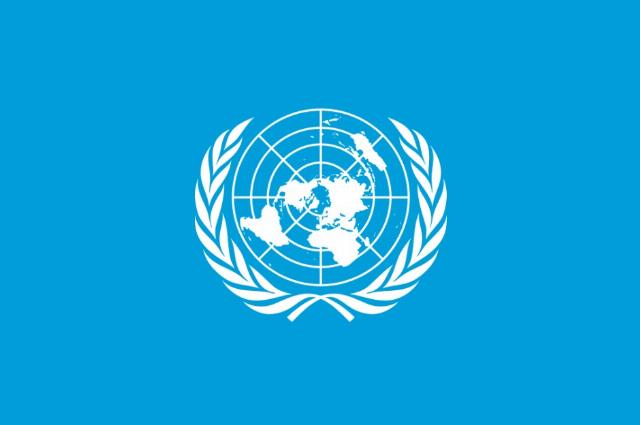by William R. Hawkins, American Thinker:
 The United Nations General Assembly (UNGA) opened its 79th session on September 24 with a week of speeches by representatives of 134 nations (out of a total of 193 members states, with another 118 observer entities and organizations). The UN is officially a member state organization, so it was appropriate to provide a forum for national leaders to express their points of view. The problem is that the UN’s bureaucracy thinks of itself as more than a forum for international politics. It is a large institution wanting to set a global agenda as a prototype world government. Its word-salad theme for the new session is “Leaving no one behind: acting together for the advancement of peace, sustainable development and human dignity for present and future generations.” This airy agenda is meant to transcend the international politics and competing interests set out by national leaders in their angry speeches to the UNGA. In a pre-UNGA meeting called The Summit for the Future, a Pact for the Future was drafted which, when adopted by the UNGA, “The result will be a world — and an international system — that is better prepared to manage the challenges we face now and in the future, for the sake of all humanity and for future generations.“ Like that’s going to happen!
The United Nations General Assembly (UNGA) opened its 79th session on September 24 with a week of speeches by representatives of 134 nations (out of a total of 193 members states, with another 118 observer entities and organizations). The UN is officially a member state organization, so it was appropriate to provide a forum for national leaders to express their points of view. The problem is that the UN’s bureaucracy thinks of itself as more than a forum for international politics. It is a large institution wanting to set a global agenda as a prototype world government. Its word-salad theme for the new session is “Leaving no one behind: acting together for the advancement of peace, sustainable development and human dignity for present and future generations.” This airy agenda is meant to transcend the international politics and competing interests set out by national leaders in their angry speeches to the UNGA. In a pre-UNGA meeting called The Summit for the Future, a Pact for the Future was drafted which, when adopted by the UNGA, “The result will be a world — and an international system — that is better prepared to manage the challenges we face now and in the future, for the sake of all humanity and for future generations.“ Like that’s going to happen!
TRUTH LIVES on at https://sgtreport.tv/
The Pact for the Future sets out the usual aims of sustainable development and peace, but the real focus is on “transforming global governance” meaning a shift of power from sovereign nation-states to transnational entities. The core document runs 38 pages. Points 6 and 7 in the introduction say “We recognize that the multilateral system and its institutions, with the United Nations and its Charter at the centre, must be strengthened… we pledge a new beginning in multilateralism. The actions in this Pact aim to ensure that the United Nations and other key multilateral institutions can deliver a better future for people and planet.” The document lays out in a cumbersome, repetitive flood of “woke” buzz words 56 “actions” the UN wants to take. The most direct assault on national sovereignty is aimed at the Great Powers. UNGA is based on “democracy” one member state one vote, so Zimbabwe has the same vote as the United States in what is called a “policy-making body.”
The UN Security Council, however, outranks the UNGA. It was established to ensure the winners of World War II would stay at the top of the pyramid. But in a dynamic world, alliances and alignments change. Among the five Great Powers with a veto, the ambitions of the Soviet Union brought on a new Cold War, and a communist revolution backed by Moscow shifted China from a friend to an enemy of the Western UNSC members (UK, France, U.S.). Action 39 of the Pact wants to enlarge the UNSC and states “The question of the veto is a key element of Security Council reform. We will intensify efforts to reach an agreement on the future of the veto, including discussions on limiting its scope and use.” For the UN bureaucracy, democracy weakens oversight.
The UN bureaucrats are looking for issues deemed larger than the growing conflicts stemming from traditional geopolitics. They created the UN Framework Convention on Climate Change in 1992 to acquire the authority to run the global economy. They hold a massive conference at the end of each year staged as if governments were kowtowing to UN mandates. But there are no mandates. All nations reserve their sovereign right to make and implement their own policies. Meeting UN goals is not at the top of the list. Their first duty remains improving the well-being of their own people. The climate issue has sparked conflict rather than consensus, because everyone knows that “sustainable” development means slow growth at best, and even a decline in living standards if the Green radicals (who hate material advancement because it is what capitalism produces) set policy. Developing countries have progress as an imperative, but in a sense all countries are developing as all societies have unmet needs and desires.
Read More @ AmericanThinker.com



